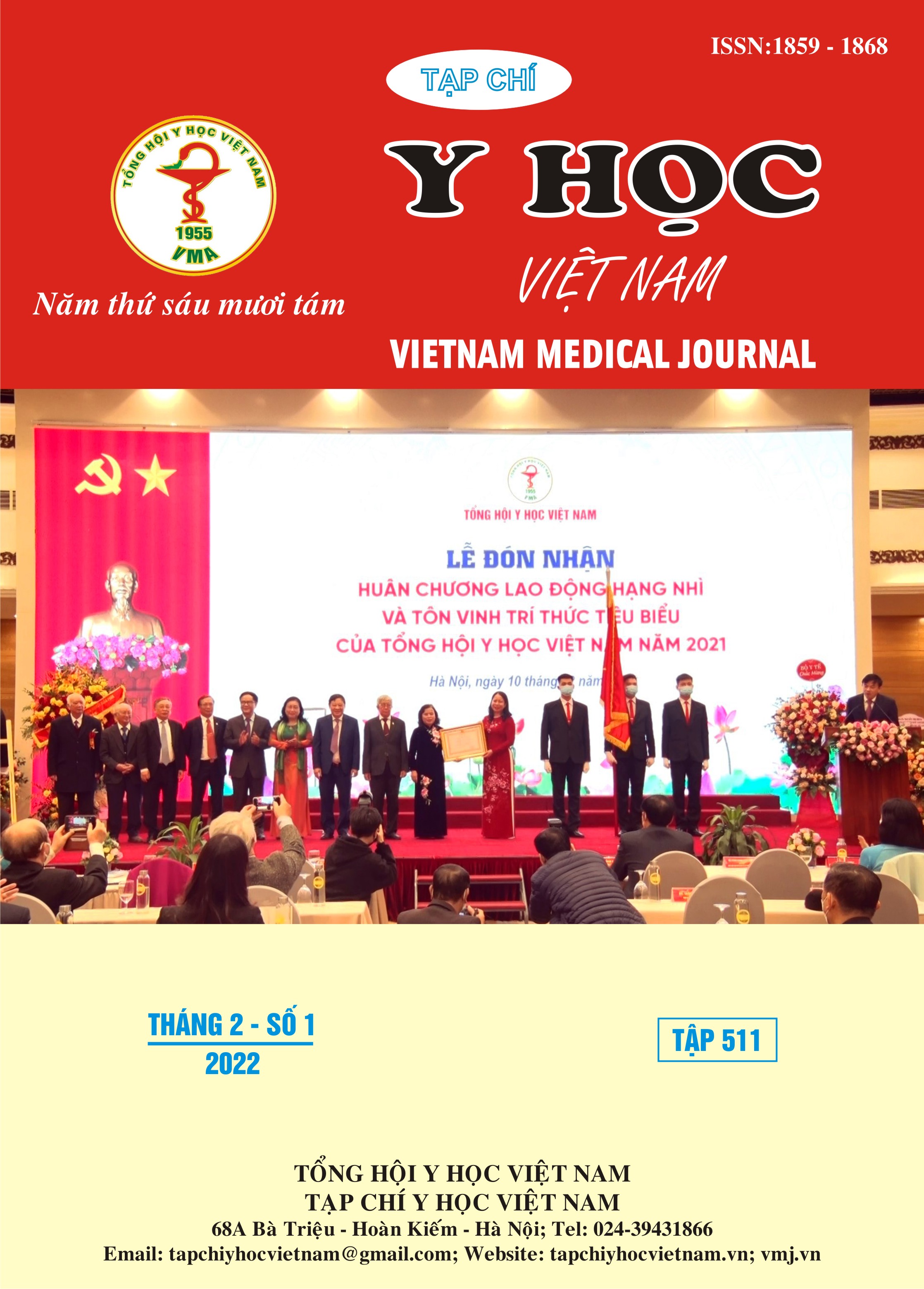THE ONSET AND DURATION OF DELIRIUM AMONG PATIENTS AGED 60 YEARS AND OLDER IN EMERGENCY DEPARTMENT IN NATIONAL GERIATRIC HOSPITAL
Main Article Content
Abstract
Our study aimed to describe the onset and duration of delirium syndrome among patients aged 60 years and older in Emergency Department in National Geriatric Hospital. This is a cross-sectional descriptive study, including 106 people aged 60 years and older who came for examination and treatment in Emergency Department in National Geriatric Hospital, who were diagnosed with delirium syndrome according to diagnostic criteria of ICD 10. Results: Most of patients had delirium symptoms were in the age group of 80 – 89 years old, the mean age was 78.3 ± 10.9. There was a small gender difference, men were more common than women (52.8% and 47.2%). The longest time to onset of delirium was found in the age group of 60 – 69: 24.6 ± 41.1 hours, while the shortest time was inthe age group 70 - 79 : 12.1 ± 24.4 hours. The average time to onset was 17.9 ± 34.1 hours. The shortest duration of delirium syndrome in the group of 60-69 years old was 3.3 ± 3.3 days. Nevertheless, the longest duration was observed in group of 80-89 years old: 6.8 ± 6.3 days. The average duration of delirium syndrome was 4.9 ± 4.9 days.
Article Details
Keywords
delirium syndrome, elderly people
References
2. Wass S, Webster PJ, Nair BR. Delirium in the Elderly: A Review. Oman Med J. 2008;23(3):150-157.
3. Fong TG, Tulebaev SR, Inouye SK. Delirium in elderly adults: diagnosis, prevention and treatment. Nat Rev Neurol. 2009;5(4):210-220. doi:10.1038/nrneurol.2009.24
4. Carpenter CR, Bassett ER, Fischer GM, Shirshekan J, Galvin JE, Morris JC. Four sensitive screening tools to detect cognitive dysfunction in geriatric emergency department patients: brief Alzheimer’s Screen, Short Blessed Test, Ottawa 3DY, and the caregiver-completed AD8. Acad Emerg Med Off J Soc Acad Emerg Med. 2011;18(4):374-384. doi:10.1111/j.1553-2712.2011.01040.x
5. O’Sullivan D, Brady N, Manning E, et al. Validation of the 6-Item Cognitive Impairment Test and the 4AT test for combined delirium and dementia screening in older Emergency Department attendees. Age Ageing. 2018;47(1):61-68. doi:10.1093/ageing/afx149
6. Shenkin SD, Fox C, Godfrey M, et al. Delirium detection in older acute medical inpatients: a multicentre prospective comparative diagnostic test accuracy study of the 4AT and the confusion assessment method. BMC Med. 2019;17(1):138. doi:10.1186/s12916-019-1367-9
7. Han JH, Vasilevskis EE, Chandrasekhar R, et al. Delirium in the Emergency Department and Its Extension into Hospitalization (DELINEATE) Study: Effect on 6-month Function and Cognition. J Am Geriatr Soc. 2017;65(6):1333-1338. doi:10.1111/jgs.14824
8. Manos PJ, Wu R. The duration of delirium in medical and postoperative patients referred for psychiatric consultation. Ann Clin Psychiatry Off J Am Acad Clin Psychiatr. 1997;9(4):219-226. doi:10.1023/a:1022300309496


